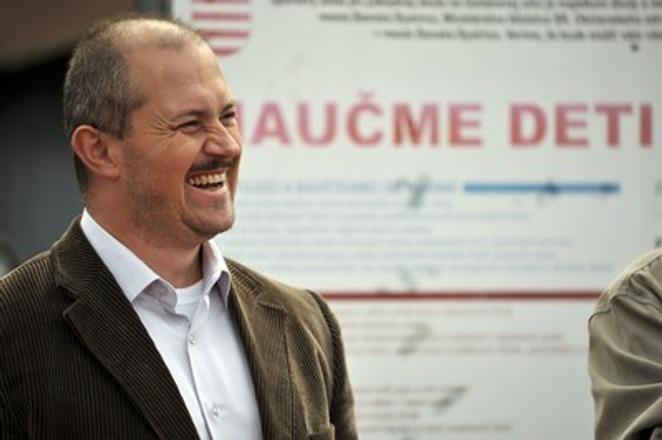This has been finally confirmed by the National Labour Inspectorate, the Denník N daily wrote on December 2. This decision can be overturned only by a court, if the Banská Bystrica Region files an appeal. It also means an ultimate end of drawing on EU funds and also on state subsidies.
Kotleba has thus more than thoroughly fulfilled his promises from the regional election campaign and his inaugural address that his region’s dependency on EU-funds will decrease.
After a May 11, 2015 inspection, the BBSK also got a fine amounting to €2,000 from the inspectorate. Kotleba appealed the decision but the inspectorate confirmed its findings. BBSK has been included in the nation-wide register, listing all illegal employers in the past five years.
The inspectorate does not offer specific information on individual cases of illegal employment, citing rules of confidentiality. Officially, the violation of illegal employment involved one person.
Due to unofficial information, this concerned a guard of the security service which supervised Kotleba’s sessions of the regional parliament. The governor hired the guards already for the first session of the parliament, and after they appeared also at the out-of-home session on January 2014 in Jelšava. The office claimed to have employed the security service through a one-time contract, for one specific day.
When Kotleba took over the position from his predecessor, Smer’s Vladimír Maňka, he inherited signed contracts for funding of €17.5 million from the EU-funds. His successor will have to manage several years without any EU-subsidies or state money, Denník N wrote.
The Banská Bystrica Regional Office failed to respond for Denník N to questions concerning the illegal employment or its consequences on the whole region. It did not state, either, the amount of money from EU-funds that Kotleba managed to get.
The region, facing the possibility of losing subsidies for the next five years, has filed a motion with the court, asking it to scrutinise the decision, etrend.sk website wrote on December 3. This does not change BBSK being listed in the register, however.
The head of the BBSK Office, Milan Uhrík, does not admit that the region could lose subsidies, according to etrend, as other institutions, like its subordinate organisations, will get the money. Experts on EU-funds argue, however, that money can be applied for only for the subjects owned by the applicant; which in the case of, for example, dual carriageways means that it has to be the self-governing region, and not institutions established to manage and maintain them. (The biggest package of money from EU-funds was planned for road and transport infrastructure, but in all probability nothing will come out of it.)


